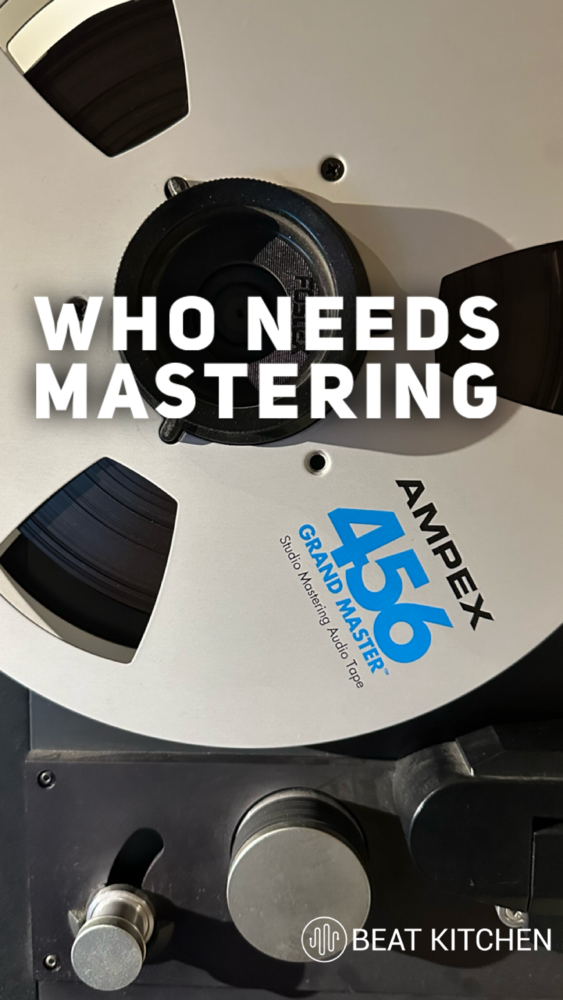Transcription of the video above
It’s a radical idea. But I teach mastering before I teach mixing, and I don’t spend a lot of time on it. Two reasons.
Mastering is pretty straightforward. The objective is easier to define. Mastering also quickly reveals mixing problems.
Show me 10 people who want a mastering class, and I’ll show you 9 who need to focus on mixing. Mastering is a legitimate process, so who actually needs to specialize there? Here are some examples.
This one I call “good lazy”. Your mix translates well between environments with only a few minor tweaks, and it’s just easier to accomplish on the 2-mix. Consistency.
You’re assembling material from various sources, and you want it to sound like it lives in the same universe. Conformity. You’re delivering to a medium that has really specific requirements, like vinyl.
And if you don’t meet those specifications, it’ll barf. Compartmentalization. You prefer to keep your mix bus clean, so the process of mixing and creating stems is always independent of what’s happening during the polishing phase.
Encoding. You have to insert things like watermarks and metadata. Safety.
A second opinion. Another set of ears. Or, of chorus, if you want to work as a mastering engineer.
Providing your services as that failsafe. Helping engineers who are working in compromised mix environments, where sometimes those corrections should have occurred. At its worst, mastering is the art of ruining a perfectly good mix at the expense of making it louder.
The tools for mastering and mixing are really the same, with the exception of specialized ones to make up for the fact that mastering engineers don’t have access to the mix. A lot of you have been asking for a mastering class, and we’ll do it. But first let’s talk and make sure that’s really what you need.
Share this with someone who belongs in a Pete Kitchen class.

